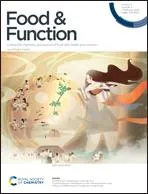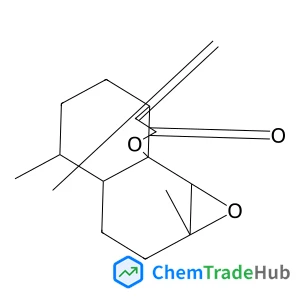The effects of Lactobacillus reuteri microcapsules on radiation-induced brain injury by regulating the gut microenvironment
文献信息
Jing Dai, Ziyan Tang, Chenyun Wang
A radiation-induced brain injury (RIBI) is a major adverse event following radiotherapy of malignant tumors. RIBI would affect cognitive function, leading to a series of complications and even death. However, the pathogenesis of RIBI is still unclear, and it still lacks specific therapeutic drugs. The gut–brain bidirectional communication may be mediated by various microbiota and metabolites in the gastrointestinal tract. Probiotics are closely related to physiological health. The theory of the gut–brain axis provides us with a new idea to improve the gut microenvironment by supplementing probiotics against RIBI. Here, Lactobacillus reuteri microcapsules (LMCs) were prepared, which were predominantly irregular spheres with a rough surface under a scanning electron microscope and a narrow size distribution ranging from 20 to 700 μm. The transmission electron microscopy images showed that the structure of microcapsules containing Lactobacillus reuteri (L. reuteri) was a core and shell structure. The survival of L. reuteri in microcapsules was significantly more than that of free L. reuteri in the simulated stomach environment of pH 1.2. 16S rDNA sequencing showed that LMCs observably increased the relative abundance of Lactobacillus in RIBI mice. More importantly, compared with the RIBI model mice, the behavior of RIBI mice treated with LMCs was significantly improved. In addition, LMCs greatly alleviated the pathological damage of the hippocampus and intestines in the mice after irradiation and reduced the level of TNF-α and IL-6 in vivo. Generally, LMCs are a promising oral preparation, which provide new ideas and methods for the treatment of RIBI.
相关文献
IF 6.843
Milk exosomes with enhanced mucus penetrability for oral delivery of siRNAIF 6.843
A new neodymium–phosphine compound for supercapacitors with long-term cycling stabilityIF 6.222
From Douglas fir to renewable H2-enriched syngas via ex situ catalytic pyrolysis over metal nanoparticles–nanocellulose derived carbon catalystsIF 6.367
Efficient one-pot synthesis of alkyl levulinate from xylose with an integrated dehydration/transfer-hydrogenation/alcoholysis processIF 6.367
Electrocatalytic cleavage of lignin model dimers using ruthenium supported on activated carbon clothIF 6.367
Synthesis and hydrogen evolving catalysis of a panchromatic photochemical molecular deviceIF 6.367
Highly efficient and durable III–V semiconductor-catalyst photocathodes via a transparent protection layerIF 6.367
Front coverIF 6.222
Three-terminal III–V/Si tandem solar cells enabled by a transparent conductive adhesiveIF 6.367
来源期刊
Food & Function

Food & Function provides a unique venue for physicists, chemists, biochemists, nutritionists and other food scientists to publish novel, cutting-edge, original research focussing on food, its nutrients and their relation to human health and nutrition. We welcome research describing the: Physical properties and structure of food and how this relates to sensory perception and human health Biochemical and physiological actions of food components Interactions between foods, gut microbiota and human physiology Nutritional and biological evaluation of food Clinical and population studies using food or food components Development of biomarkers of food intake and effects on human health We also welcome systematic reviews and meta-analyses of existing studies in the literature, provided these are objective and scientifically valid Food in this context is defined as materials of plant, animal or mineral origin, which are consumed orally (by humans) for pleasure and to sustain growth and vital processes. Examples of research topics that are of interest to be published in Food & Function are: Chemistry and physics of food components and digestion processes Relationship between the physical properties/structure of food and nutrition and human health - for example, impact of food matrix or processing on nutrient release and uptake Molecular properties and physiological effects of food components (nutrients, fibres, essential micronutrients, phytochemicals, bioactives, food substitutes, novel ingredients, allergens, flavours and fragrances) Nutritional and health effects of food including bioavailability and metabolism assessment of food components (nutrients, micronutrients and other microconstituents) Efficacy and mechanisms of food constituents in the body - including biomarkers of intakes, exposure and effects Impacts of foods/food components on gut microorganisms and human physiology - For example impact of fermented foods Role of nutrition and diet in human disease prevention and development Cellular and molecular effects/mechanisms of food/food components image block The following types of research are not within the scope of Food & Function: Research relating to traditional herbal medicines, medicinal plants or active compounds extracted from such plants (materials that are primarily consumed as medicine, i.e. the intended purpose is primarily to treat, cure or prevent a non-deficiency disease) or relating to foods not recognised as human diet contributors Animal nutrition research that is not primarily designed as a model to benefit human nutrition (for example, studies of growth/accretion, heat stress, weaning, ruminant digestion, meat quality, etc.) Treatments administered by non-oral routes such as injection (subcutaneous, intramuscular, intraperitoneal, etc.), dermal/transdermal, rectal, inhalation, nasal, etc. Exceptions are when such routes of administration are used for mechanistic/control purposes in the experimental design Pharmacological/pharmaceutical approaches: Encapsulation, emulsification and/or pure controlled release of compounds or bioactives that do not come directly from edible foods, such as dietary supplements - these are better suited to a pharmaceutical journal In vitro or in vivo studies with poorly defined (insufficiently characterised) extracts and studies without appropriate controls will not be considered Cells studies not considering the metabolism of food components ingested – for example, irrelevant exposure of cells to compounds not present in the body after absorption Manuscripts with only a fully theoretical/bioinformatic approach and without appropriate support from analytical evidence will not be considered for publication Studies focussing solely on food engineering, preservation and sustainable technologies – these can be published in our companion journal Sustainable Food Technology Pure food analysis - these can be published in Analytical Methods
推荐供应商
 武汉顺源昇生物医药科技有限公司
武汉顺源昇生物医药科技有限公司 山东省药学科学院中试厂
山东省药学科学院中试厂 济南信立业化工有限公司
济南信立业化工有限公司 深圳市诚峰智造有限公司
深圳市诚峰智造有限公司 江苏双马化工集团
江苏双马化工集团 广州恒石进出口贸易有限公司
广州恒石进出口贸易有限公司 扬州市天泰化工有限公司
扬州市天泰化工有限公司 Variati & Co. S.p.a.
Variati & Co. S.p.a. 重庆万好净化科技有限公司
重庆万好净化科技有限公司 上海开特生物科技有限公司
上海开特生物科技有限公司














